Moonsama's Approach to Web3 Governance

Pioneering Innovative Governance for Web3
Introduction to Web3 Governance
In the rapidly evolving landscape of blockchain technology, governance holds the key to shaping the future of decentralized ecosystems. The transition into the Web3 era brings forth new challenges and opportunities in governance, requiring innovative approaches to address them. Moonsama, a visionary project in the blockchain ecosystem, has emerged as a trailblazer in embracing Web3 governance principles and empowering communities to drive decision-making. In this article, we will explore Moonsama's early adoption of Web3 governance, its decentralized framework, and the groundbreaking concepts that fuel its revolution.
New Governance Platform replacing Townhall (as of August 2023):
https://governance.moonsama.com/
Townhall - In-game voting (pre August 2023):
mcapi.moonsama.com/townhall
Raresama - We shape the future of our NFT Marketplace:
raresama.com/governance
Our first on-chain votes:
vote.moonsama.com
Moonsama Court:
t.me/courtsama
Tokengated Community Chats:
tokengate.moonsama.com
tokengate.exosama.com
Check out Gavin Wood, the father of Web3, giving us a Governance shout-out!
Moonsama's Early Adoption of Web3 Governance
Pioneering Web3 Governance in the blockchain ecosystem
Moonsama has boldly ventured into uncharted territory by embracing Web3 governance principles from the project's inception. By recognizing the limitations of traditional governance structures and envisioning a future where communities have a direct say in the decision-making process, Moonsama has set itself apart as a beacon of change.
Advantages of early adoption and community-driven decision-making
By adopting Web3 governance early on, Moonsama has gained a strategic advantage in shaping its ecosystem. The project has fostered a culture of community-driven decision-making, empowering participants to actively contribute to the development and evolution of the platform. This inclusive approach not only enhances transparency but also enables the collective wisdom of the community to guide Moonsama's path.
Multi-Chain and Multi-Verse Nature of Web3
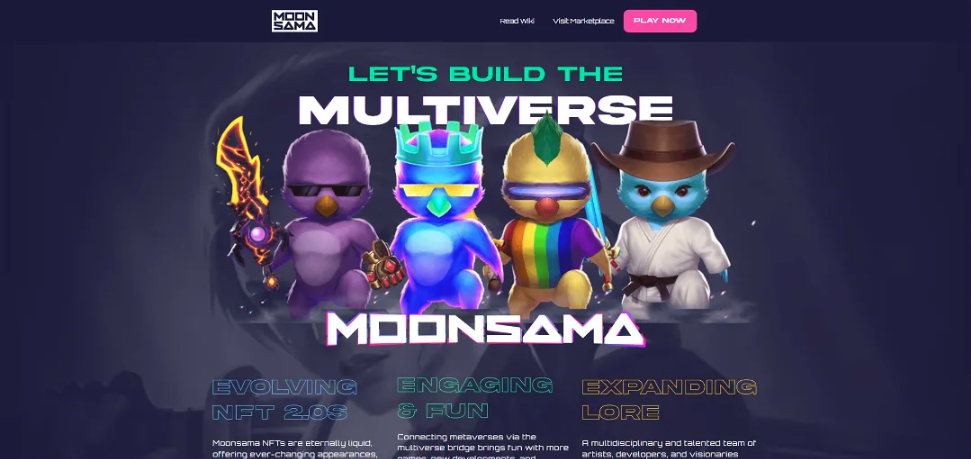
Different Blockchain Strengths and Trade-offs
Web3 embraces a multi-chain paradigm, where each blockchain possesses unique strengths and trade-offs in terms of security, decentralization, throughput, and feature sets. Moonsama recognizes the diverse capabilities offered by various blockchains and aims to harness their power to create a rich and interconnected ecosystem.
Polkadot's domain-specific upgradeable parachain architecture
Polkadot, a prominent player in the Web3 landscape, has introduced a domain-specific upgradeable parachain architecture that facilitates interoperability and scalability. Moonsama acknowledges the significance of Polkadot's innovation and leverages its capabilities to enable seamless integration and asset utilization across different games, ecosystems, and metaverses.
Use of on-chain assets across games, ecosystems, metaverses
In the Web3 era, individuals desire the ability to use their on-chain assets seamlessly in diverse virtual environments. Moonsama recognizes this need and aims to create an ecosystem where users can leverage their on-chain assets across games, ecosystems, and metaverses, unlocking a new level of fluidity and value for participants.
Traditional Governance vs. Web3 Governance

Exploring traditional governance structures and their limitations
Traditional governance structures often suffer from centralization, limited participation, and exclusivity. Decision-making power tends to concentrate in the hands of a few, hindering inclusivity and impeding progress. Moonsama challenges these limitations by embracing a new paradigm of governance that empowers every participant in the ecosystem.
Introducing the concept of Web3 Governance and it's benefits
Web3 Governance introduces a fresh approach that leverages decentralization, transparency, and community engagement. By giving stakeholders the ability to actively participate in decision-making processes, Web3 Governance fosters inclusivity, empowers individuals, and ensures that the collective voice guides the trajectory of the ecosystem.
Challenges and Considerations in Web3 Governance
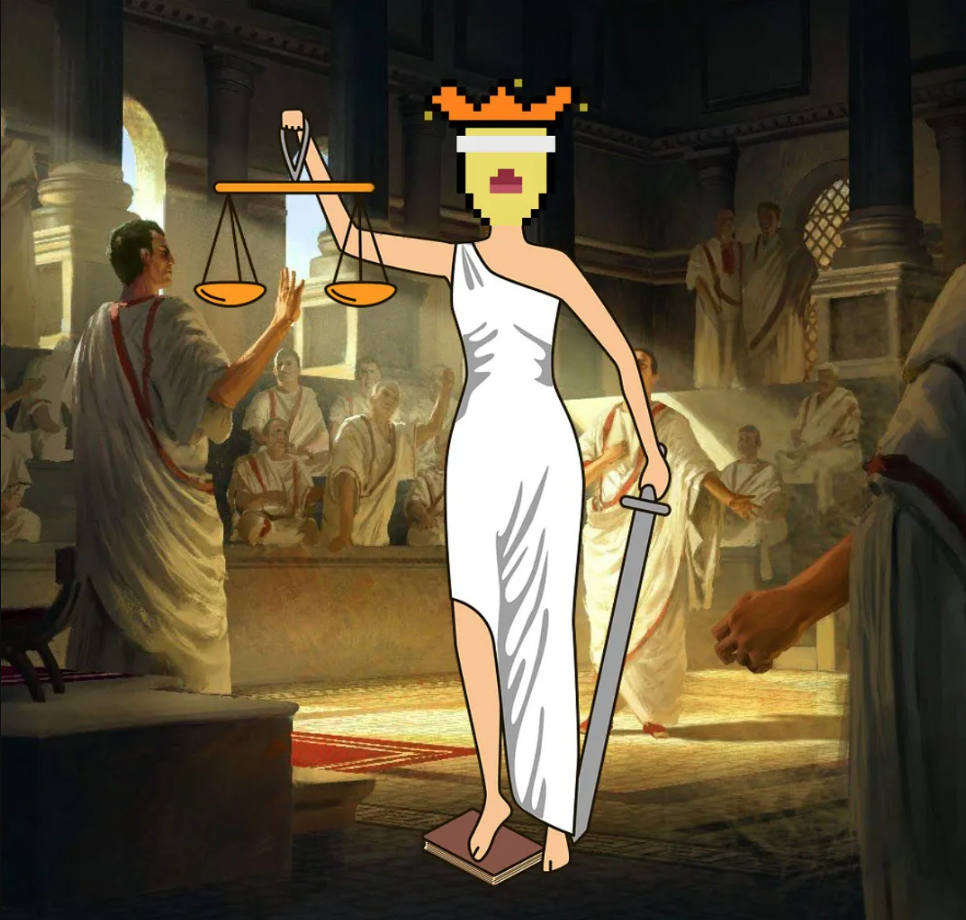
Ensuring inclusivity and avoiding centralization of power
Web3 Governance strives to avoid the concentration of power in the hands of a few entities. Moonsama recognizes the importance of inclusivity and actively works towards creating a governance model that allows for broad participation, ensuring that decisions reflect the diverse perspectives of the community.
Addressing potential security and scalability concerns
As Web3 governance evolves, it must address the challenges of security and scalability to ensure the integrity of decision-making processes. Moonsama prioritizes these considerations, implementing robust security measures and exploring scalable solutions to accommodate the growing demands of a thriving ecosystem.
Balancing governance efficiency with community consensus
Efficiency and consensus are two critical elements in Web3 governance. Moonsama recognizes the delicate balance between making prompt decisions and reaching broad consensus among stakeholders. Striking this balance requires thoughtful mechanisms and continuous improvements to streamline the governance process while maintaining the integrity of community consensus.
Polkadot and Gavin Wood
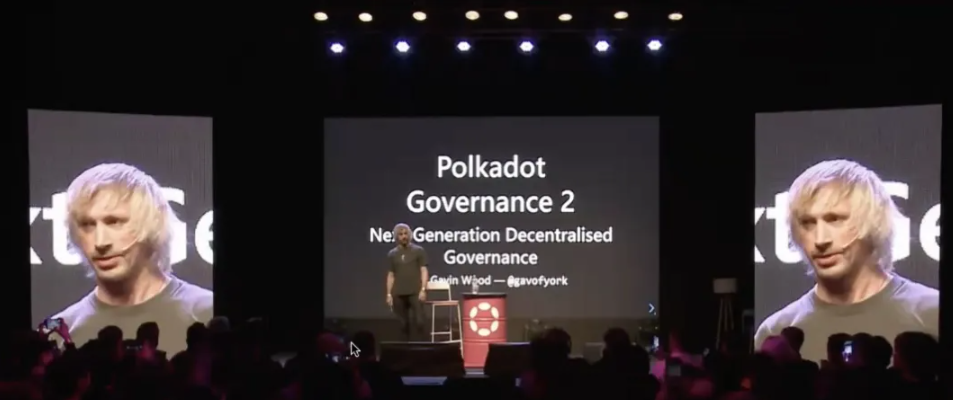
Overview of Polkadot and it's role in Web3
Polkadot, created by the visionary Gavin Wood, is a next-generation blockchain protocol that enables interoperability between different blockchains. It serves as a critical infrastructure in the Web3 ecosystem, facilitating seamless communication and collaboration among disparate blockchain networks.
Introduction to Gavin Wood, co-founder of Ethereum and creator of Polkadot
Gavin Wood, a prominent figure in the blockchain space, co-founded Ethereum and played a pivotal role in shaping the landscape of decentralized technology. With the creation of Polkadot, Gavin Wood has demonstrated his unwavering commitment to advancing the possibilities of Web3 and driving the evolution of governance frameworks.
Polkadot's approach to governance and it's significance
Polkadot's governance model embodies the principles of decentralization and community-driven decision-making. By employing a sophisticated system that allows stakeholders to propose and vote on network upgrades, Polkadot ensures that governance decisions align with the collective interests of the ecosystem. Moonsama draws inspiration from Polkadot's approach and integrates it into its own Web3 governance framework.
Addressing Low Participation in Governance

Removing wealth as the sole determinant of governance access and power
Moonsama recognizes that governance should not be solely determined by wealth or token holdings. It seeks to remove barriers and empower individuals who actively contribute to the ecosystem, regardless of their financial standing, by considering other factors such as experience and dedication.
Emphasizing experience and dedication to the ecosystem's success
To encourage meaningful participation, Moonsama values the experience and dedication of individuals to the ecosystem's success. By giving weight to contributions, expertise, and long-term involvement, Moonsama ensures that those who have demonstrated commitment and understanding of the project have a significant voice in the governance process.
Introduction of proof-of-personhood through in-person key-signing meetups
Moonsama introduces in-person key-signing meetups as a strategy to bolster governance authenticity and deter Sybil attacks, thereby solidifying the link between real-world humans and their corresponding blockchain identities. This approach is characterized by:
- Integrating secure key-signing sessions within concurrent game sessions. This provides a seamless, engaging experience for participants by streamlining the verification process within the gaming ecosystem.
- Distinctly identifying real-world humans and associating them with separate blockchain addresses. This process ensures accurate representation in the governance system, enhancing security and authenticity by preventing automated or duplicate account interferences.
Moonsama Web3 Governance Framework

- Community-Driven Decentralized Governance: Moonsama leverages decentralized technologies to foster inclusivity, transparency, and collective decision-making. The framework encourages every participant to help shape the project's future.
- Active Role of Community Members: In Moonsama's governance, community members propose initiatives, engage in discussions, and vote on governance proposals. Their collective insight and varied perspectives are integral to the ecosystem's governance.
- Transparent Proposal and Voting Mechanism: Moonsama's governance structure includes a fair proposal submission and voting process. After a period of community feedback and refinement, members' proposals are put to a vote to ensure decisions echo the collective voice.
- Smart Contracts for Decision-Making: Moonsama employs smart contracts for automated, secure, and transparent decision execution, eliminating the need for intermediaries or centralized authorities, thus reinforcing the integrity of governance decisions.
NFT-Based Governance

Introduction to NFTs as a new opportunity for governance
Non-Fungible Tokens (NFTs) present a revolutionary opportunity for governance in the Web3 era. These unique digital assets can represent ownership, participation, and influence within the ecosystem. Moonsama embraces the power of NFTs to enhance community-driven governance.
Community-driven governance through NFT ownership
By owning specific NFTs, community members gain the ability to actively participate in governance decisions. Moonsama leverages the ownership of NFTs as a means to grant voting power and influence in shaping the project's direction.
Voting power based on specific NFT ownership
Moonsama assigns voting power based on the ownership of specific NFTs, ensuring that decisions reflect the preferences and priorities of those deeply invested in the ecosystem. This approach fosters a sense of ownership, commitment, and loyalty among participants.
Governance decisions on project integrations and eligibility criteria
NFT-based governance allows the community to have a say in critical decisions, such as project integrations and eligibility criteria. By collectively voting on these matters, community members actively shape the expansion and evolution of the ecosystem.
Community-oriented governance for individual projects
NFT-based governance also extends to individual projects within the Moonsama ecosystem. Community members with relevant NFT ownership can actively participate in decision-making processes specific to those projects, ensuring that their interests are considered.
Incorporating Concepts from Polkadot Governance Fellowship
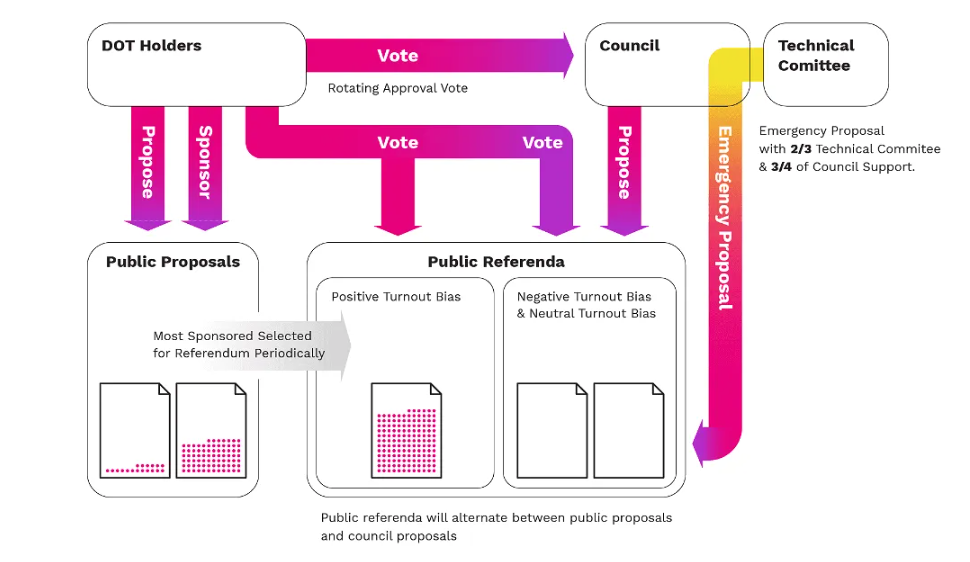
Meritocratic approval and whitelisting body for protocol upgrades
Moonsama explores the concept of a meritocratic approval and whitelisting body, inspired by the Polkadot Governance Fellowship. This body would ensure that proposed protocol upgrades undergo rigorous evaluation, fostering a responsible and secure approach to governance.
Potential inclusion of Fellowship concepts into the governance model
By incorporating elements from the Polkadot Governance Fellowship, Moonsama aims to refine and enhance its governance model. The integration of these concepts strengthens the ecosystem's resilience, security, and alignment with community interests.
The Role of Decentralization and Security
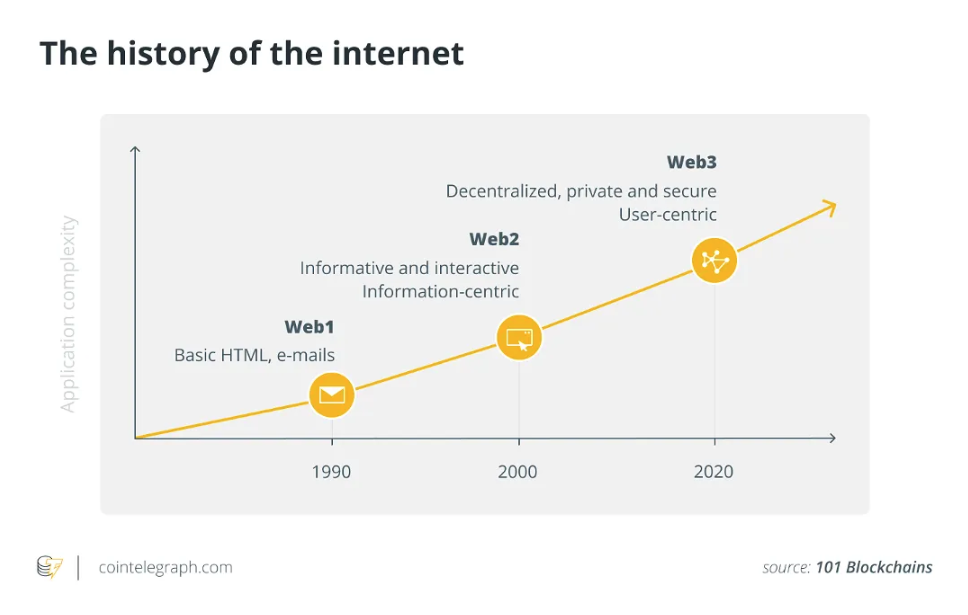
Importance of decentralization in Web3 governance
Decentralization lies at the core of Web3 governance. Moonsama emphasizes the importance of a decentralized governance model, where decision-making power is distributed among stakeholders. This approach ensures resilience, minimizes the risk of single points of failure, and upholds the principles of Web3.
Ensuring security measures in the governance system
Moonsama prioritizes the implementation of robust security measures within its governance system. By leveraging cryptographic technologies and best practices, Moonsama ensures the integrity of governance processes, protects against malicious actors, and safeguards the ecosystem.
Future Direction and Challenges

Exploration of evolving governance models in web3
Web3 governance is a field in continuous evolution, with Moonsama actively pioneering innovative models and mechanisms. One such proposal is Kyilkhor’s staking model, which introduces a unique staking system that leverages NFTs for individual staking positions and enhances governance participation through a virtual voting power unit known as veSAMA. Kyilkhor, the CEO of Moonsama, envisages a future where governance is even more decentralized and inclusive, supported by systems like Jur's Network State.
Moonsama's Partnership with Jur: Building a Network State

The partnership with Jur, a Web3 project building the future of governance: DeGov, is a significant move for Moonsama. Jur's founder, Alessandro Palombo, has joined Moonsama as a governance advisor. Together, they are working on building a Network State for Moonsama, aiming to create a new form of digital-native jurisdiction for the digital economy, powered by web3 technologies. This partnership reflects Moonsama's ambition to further strengthen its governance model.
Potential Challenges and Considerations for the Future
As Moonsama ventures into uncharted territories of Web3 governance with the new staking proposal and the building of its Network State in collaboration with Jur, it anticipates potential challenges such as scalability issues, maintaining inclusivity, and navigating the regulatory landscapes. There are also new complexities to manage such as the utilization of the "SAMA locker" - a warehouse of locked up SAMA from staking that could potentially be used as liquidity in DeFi. Moreover, the integration of ESSENCE, Bullions, and the pallets from Jur introduces novel dynamics to the ecosystem which may require iterative calibration and optimization to ensure a balanced and sustainable governance system.
Summary
Recap of Key Points in Web3 Governance
Web3 governance represents a new model of decision-making in decentralized ecosystems, with Moonsama leading the way in pioneering a novel approach that embraces inclusivity, transparency, and community empowerment. The recently proposed staking system by Kyilkhor, Moonsama's CEO, and the partnership with Jur for building a Network State, offers a glimpse into the potential future of Web3 governance. By assigning voting power based on long-term commitment, using NFTs for staking, and introducing innovative tokens and governance models, Moonsama sets a new standard in Web3 governance.
Emphasis on the Need for Broader Participation and Securing the Ecosystem
For Moonsama, broader participation and securing the ecosystem are the keys to successful Web3 governance. The proposed staking model, and the introduction of a Network State built in partnership with Jur, are designed to empower individuals, leverage NFTs, and incorporate novel concepts to create a more inclusive, resilient, and community-driven future for Web3 governance. Yet, securing the ecosystem extends beyond broad participation. It involves maintaining a vigilant stance on potential security threats, ensuring a responsive and resilient governance model, and fostering a collaborative environment for ongoing innovation and improvement.
